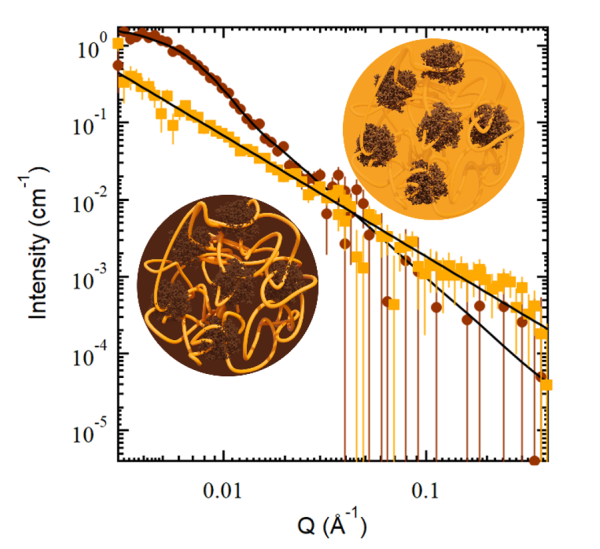Evidence for Covalent Complexes Between Lignin and Pectin in Plant Cell Walls

Scientific Achievement
Evidence for lignin–carbohydrate complexes (LCCs) formed between lignin and pectin was obtained by synthesis and biophysical characterization of deuterated lignin–pectin composites.
Significance and Impact
Engineered plants with reduced pectin exhibit lower recalcitrance towards conversion to biofuels. This work shows that interactions between pectin and lignin may explain this pectin knockdown effect.
Research Details
- Partially deuterated d5-coniferyl alcohol was synthesized at the Center for Nanoscale Material Science at ORNL.
- Coniferyl alcohol was polymerized to lignin in vitro in the presence of the pectin homogalacturonan to form composites.
- Composites characterized by SANS, FTIR, solid-state NMR and SAXS, and compared with native and pectin-deficient switchgrasses.
Riddhi S. Shah, Manjula Senanayake, Hong-Hai Zhang, Yunqiao Pu, Ajaya K. Biswal, Sai Venkatesh Pingali, Brian Davison, and Hugh O’Neill,
“Evidence for Lignin–Carbohydrate Complexes from Studies of Transgenic Switchgrass and a Model Lignin–Pectin Composite,”
ACS Sustainable Chemistry and Engineering 11, 44, 15941-15950, (2023), doi.org/10.1021/acssuschemeng.3c04322.








